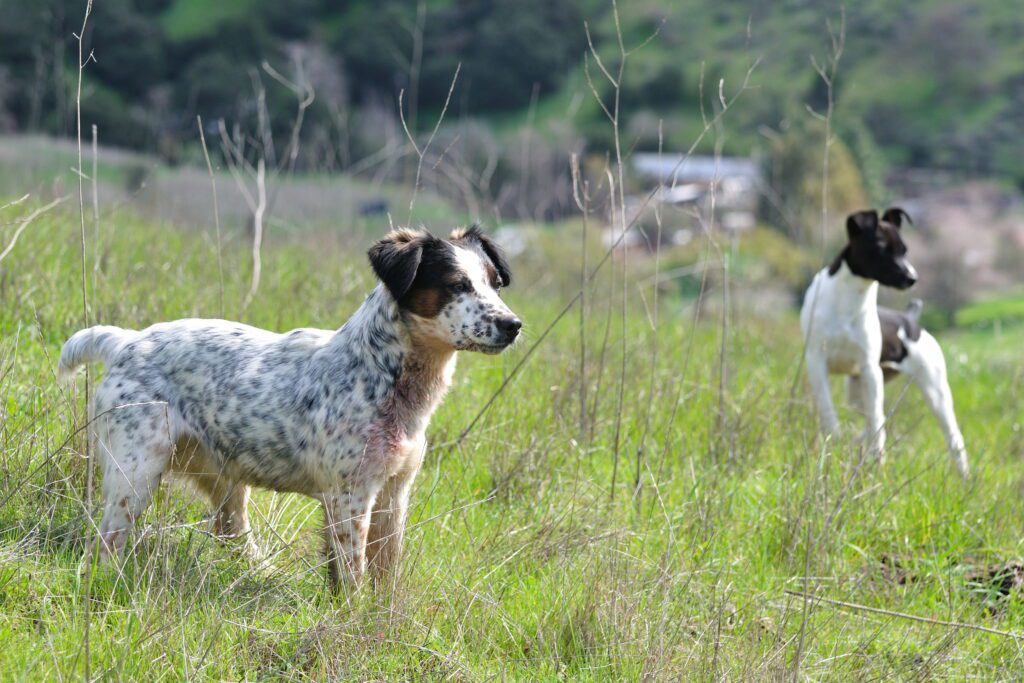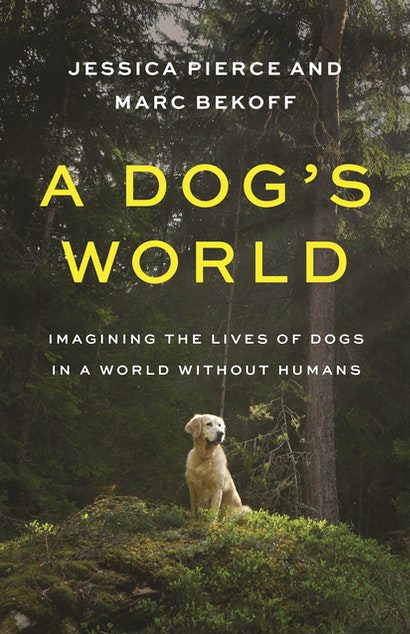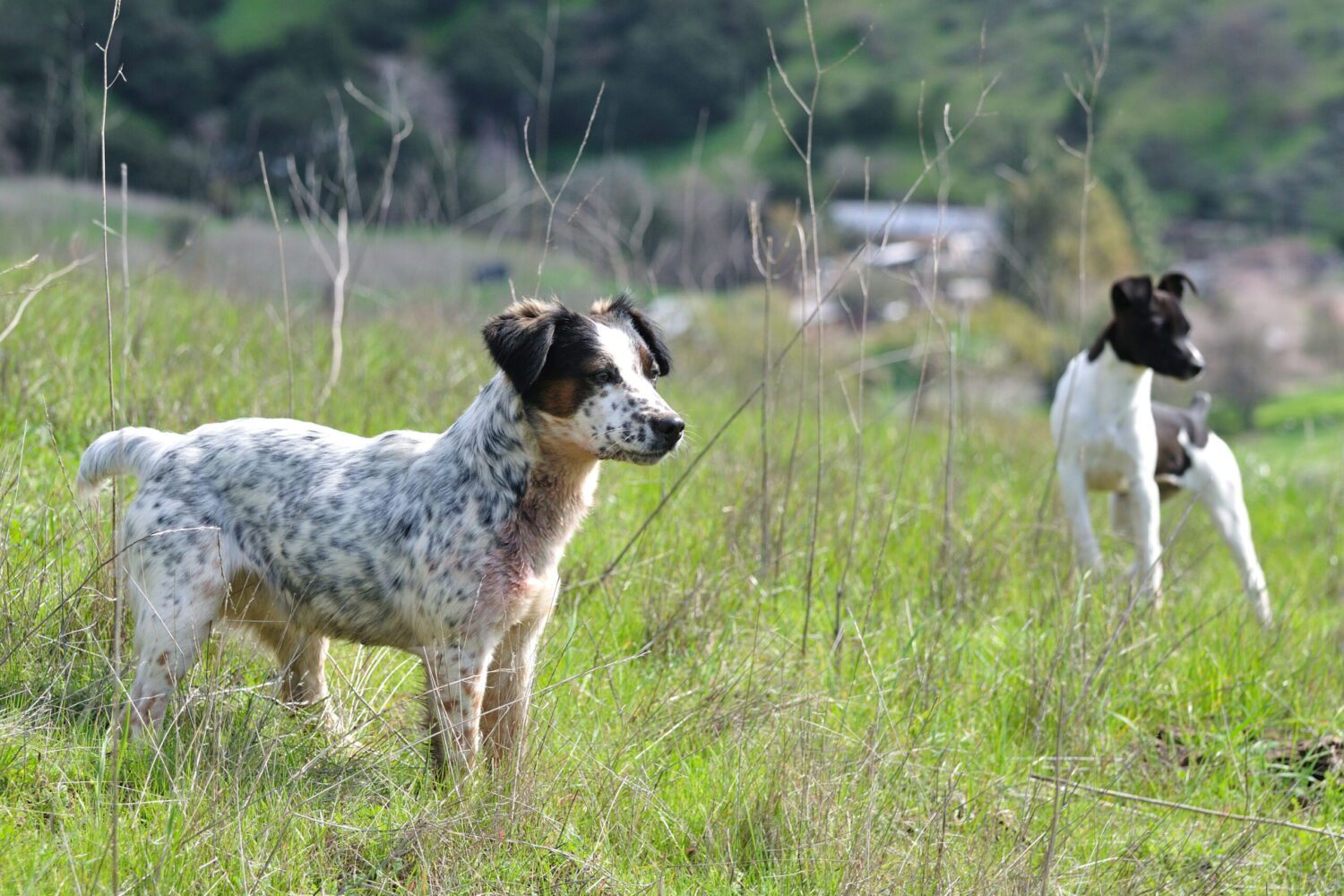


A thought experiment tells us a lot about man’s best friend—and ourselves.
By Jessica Pierce and Marc Bekoff, Independent Media Institute
6 min read
This excerpt is from A Dog’s World: Imagining the Lives of Dogs in a World Without Humans, by Jessica Pierce and Marc Bekoff (Princeton University Press, 2021). This web adaptation was produced by Earth | Food | Life, a project of the Independent Media Institute.
Would dogs be better off without us? This may be a difficult question to consider if you live with a dog, love dogs, and find beauty in the enduring loyalty of the human-dog partnership. If you are reading this book with a dog curled up next to you on the couch or on her fluffy dog bed, happily licking peanut butter out of a Kong, this question might even be too painful to contemplate: How would my dog survive, naked and afraid, set adrift in a frightening new reality, without me to keep her safe? Yet try to imagine for a few moments not only what your dog might lose, but also what she might gain. Better yet, think about the whole range of individual dogs who currently share the planet with humans and consider the potential losses and the potential gains of having the world to themselves. And think about dogs who might come after the transition, who have never known life with humans. Maybe dogs as a species would have a better go of things on a planet that they didn’t have to share with people, if the 20,000-year-long domestication experiment—which, arguably, has had its problems—were called off once and for all.
Dogs would be challenged by living on their own in a posthuman world. But a posthuman world is also full of what you might call “dog possibilities”—the various ways in which dogs would adapt, innovate, and expand their experiential worlds. We’ve seen that there is far more to the lives of dogs than being a house pet, spending the day chasing balls, barking at the postal delivery person, or waiting anxiously for their person to come home from work. A dogs’ world is a bustling place, with dogs working on their own and with others to solve the puzzle of survival and to reap the rewards of life. Trying to catalog what dogs might stand to gain and lose if humans disappeared can help bring into focus some of the ways in which humans make life hard for dogs. More pertinent for those of us who live with companion dogs are the potential insights about how we might, without even realizing it, be asking our dogs to live in ways that constrain who they are and who they might become, the many ways in which we compromise the “dogness” of dogs. Having a sense of the whole experiential range of dog possibilities may help us become better companions to our dogs.
To explore whether the dog sitting next to us on the couch is fantasizing about a humanless world, we’ve tried to identify the potential gains and losses for dogs in a world without us. As you might expect, the question, “Would dogs be better off?” does not yield a simple “yes” or “no” answer, and the further you dive into the question the murkier the waters become.
Variables at Play in the Gains and Losses Game
We’ve constructed a comprehensive list of what dogs stand to gain or lose if humans go extinct in our book. Here are a few thoughts on why judgments about gains and losses are complicated.
What dogs may gain or lose as a species is distinct from what an individual dog stands to gain or lose. The sudden disappearance of humans will result in broadscale losses at the individual level. Many dogs will be ill-equipped to survive, not having had any lived experiences of obtaining their own food, finding shelter, or forming a workable pair bond. Depending on how humans disappear, individual dogs in captivity—for example, inside homes with no way to get out, or locked inside shelters or laboratory cages—will perish. Overcrowding of dogs in some areas may lead to intense competition for scarce food resources. Moreover, large numbers of individual dogs will be unable to reproduce because they have been desexed, and so even if individuals manage to survive, they will be at a genetic dead end. Nevertheless, enough dogs may survive this first wave so that viable populations will be able to take hold in habitable ecosystems. Dogs as a species may very well go on to flourish.
The gains and losses for dogs in a world without humans will be unique and will depend a great deal on where a dog begins this unprecedented journey into a posthuman future. The unique characteristics of where and how each dog is living when humans disappear will greatly influence what challenges they face and what is experienced as a loss or gain. How well they cope will depend on an individual dog’s personality, past experiences, learning, social and emotional intelligence, and physical attributes.
Dogs currently live in wildly diverse relationships with humans, and while some dogs may keenly miss humans, others will be glad to see us go. A pet dog with a well-informed, motivated, and empathic human caregiver has more to lose than a dog caged at a research laboratory or in a puppy mill. Feral dogs will miss the enormous piles of garbage that humans produce but may not experience any loss of human companionship. Although the challenges for pet, free-ranging, and feral dogs will be different, the loss of humans and the transition from human selection to natural selection will be abrupt, and it won’t be pretty for many of the dogs on the planet.
There will be far fewer posthuman dogs inhabiting the planet. A reduction in total numbers should not necessarily be viewed as a complete loss because arguably there are too many dogs, their population having been bloated by intensive human breeding and careless pet-keeping practices. The size of dog populations, especially in dog-dense areas, will need to be much smaller to be sustainable, with sustainability depending on the carrying capacity—the maximum population size of a species that can be sustained within a given environment—of different habitats in which dogs are trying to survive.
Posthuman dogs may form short- or long-term groups. What might be a gain for a group isn’t necessarily a gain for all individuals within the group, and much will depend on who else is in the group and the ecological conditions with which the group must contend. Groups of animals tend to be most robust when they contain a broad range of behavioral phenotypes. It may be good for a group to have a combination of high-ranking and low-ranking individuals, but life might be difficult for those individuals who are of lower rank.
If humans disappeared, some gains and losses would be felt immediately, such as loss of human food subsidies and the gain of freedom from physical constraint, but the effects of human disappearance will reverberate and shift over generations.
Editor’s Note: For more about the book, see “Science and Speculation Say Dogs Would Do Well Without Us” (Psychology Today, October 21, 2021) by co-author Marc Bekoff. For a deeper dive into many of the topics addressed in the book, please visit Dr. Bekoff’s blog, Animal Emotions.
###
Jessica Pierce is a faculty affiliate at the Center for Bioethics and Humanities at the University of Colorado Anschutz Medical School. Her books include Run, Spot, Run: The Ethics of Keeping Pets. Find her at jessicapierce.net.
Marc Bekoff is professor emeritus of ecology and evolutionary biology at the University of Colorado Boulder. His books include Canine Confidential: Why Dogs Do What They Do. Find him at marcbekoff.com and on Twitter @MarcBekoff.
Take action…
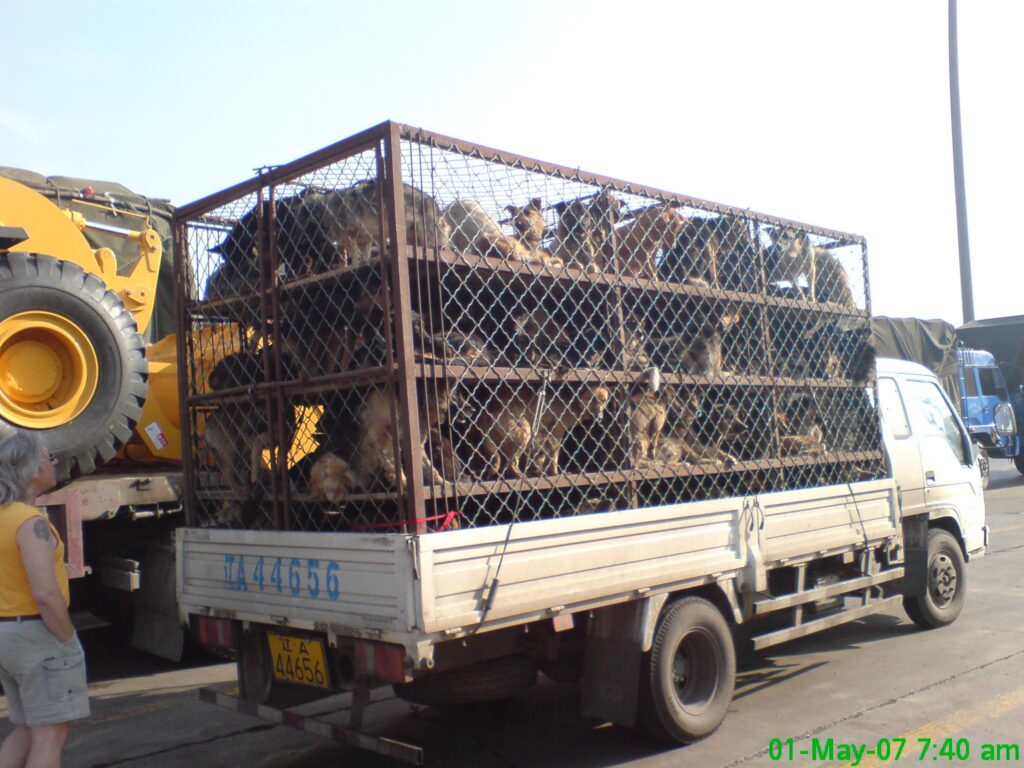
More than 5 million people call for an end to Yulin’s cruel dog meat festival
“Did you know, every year, on the summer solstice, thousands of dogs are rounded up to be eaten in Yulin, China, as part of a dog meat festival? We believe that this cruel ‘festival’ has no place in the 21st century,” writes the Duo Duo Project, a nonprofit organization dedicated to ending the brutal dog and cat meat trade in China. The group launched a petition, signed by more than 5 million people, urging the mayor of Yulin to end the festival.
“The Yulin Dog Meat Festival is also a dangerous food safety issue,” states the group. “Dogs sold on the market are sick, poisoned and dying animals. They suffer from horrendous conditions during the long-distance, trans-provincial journeys, many days without food and water and may carry contagious disease. We appeal to you to act in the interest of public health, food safety, animal welfare, and the image of Guangxi and China. The Yulin Dog Meat Festival is a business operation that undermines the national and public interest. The Guangxi Zhuang Autonomous Region government is at a historical juncture. The Yulin Dog Meat Festival must end.”
Urge the mayor of Yulin, China, to end the cruel Yulin Dog Meat Festival.
Cause for concern…
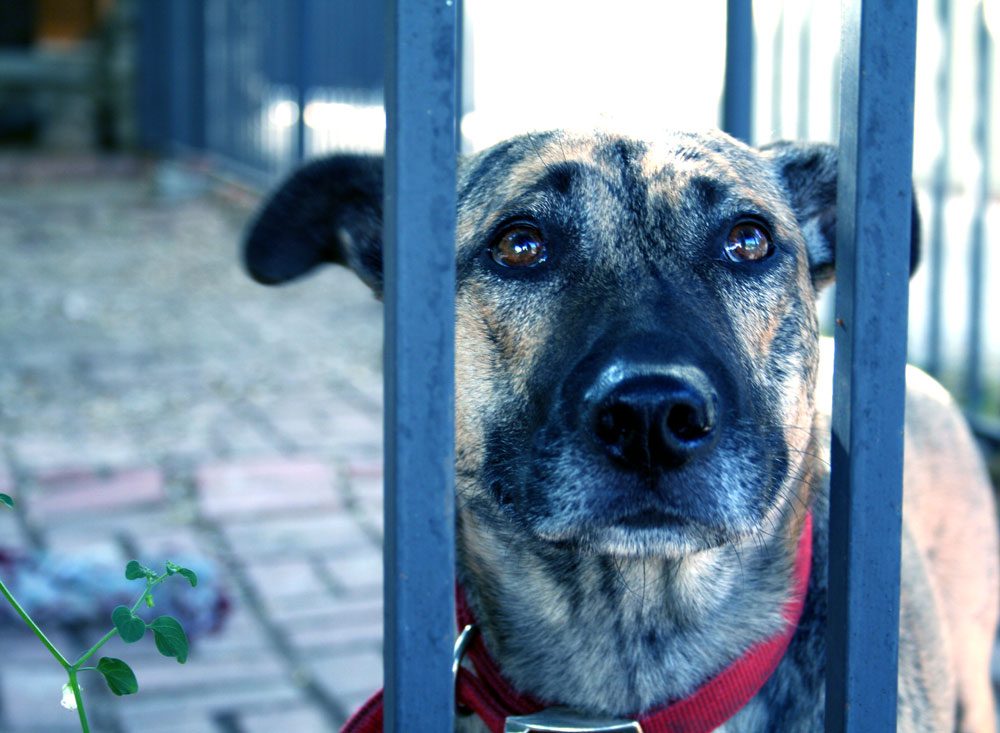
Tens of thousands of rescued dogs left stranded in wake of CDC import ban
“Unfortunately, the COVID-19 pandemic has changed the dynamics of [a system that rehabilitates and rehomes dogs rescued from horrific, inhumane Chinese meat markets],” reports Zach Fitzner for Earth.com. “The dogs are relocated to families in the U.S. and Canada. … A recent ban from the Centers for Disease Control (CDC) has effectively banned [the] importation of dogs from China to the U.S. Now, all of the dogs bound for the U.S. have been rerouted to Canada instead. The effect has delayed the imports of tens of thousands of dogs.
“‘Since the import ban, our rescue is among many others that have had to find a new normal,’ said Jill Stewart, president and founder of China Rescue Dogs, a nonprofit that for many years has saved dogs from Chinese meat markets, finding them forever homes in North America. ‘Our choices were limited and grim, but China Rescue Dogs has remained committed to saving dogs from China regardless of how we got it done. While rerouting dogs to Canada is the logical choice, costs have been exuberant.’”
—Zach Fitzner, “Tens of thousands of rescue dogs impacted by CDC ban” (Earth.com, January 1, 2022)
Round of applause…

Dogs are probably even smarter than we thought
“[N]euroscientists Laura Cuaya and Raúl Hernández-Pérez moved from Mexico to Budapest with their two border collies and one cat. When they realized how different it was to be surrounded by people speaking Hungarian instead of their native Spanish, they wondered if their canine companions had noticed this as well,” writes Annie Melchor for Scientific American, about a study that indicates that dogs can distinguish between speech and gibberish, and between different human languages. “From the fMRI scans, the researchers saw the same areas of the brain light up but with different activation patterns, depending on whether the dogs were hearing the story in their native language or a new one—suggesting that they were neurologically processing differences between the two languages.”
—Annie Melchor, “Dogs Can Distinguish Speech from Gibberish—and Tell Spanish from Hungarian” (Scientific American, January 6, 2022)
Moving the needle…
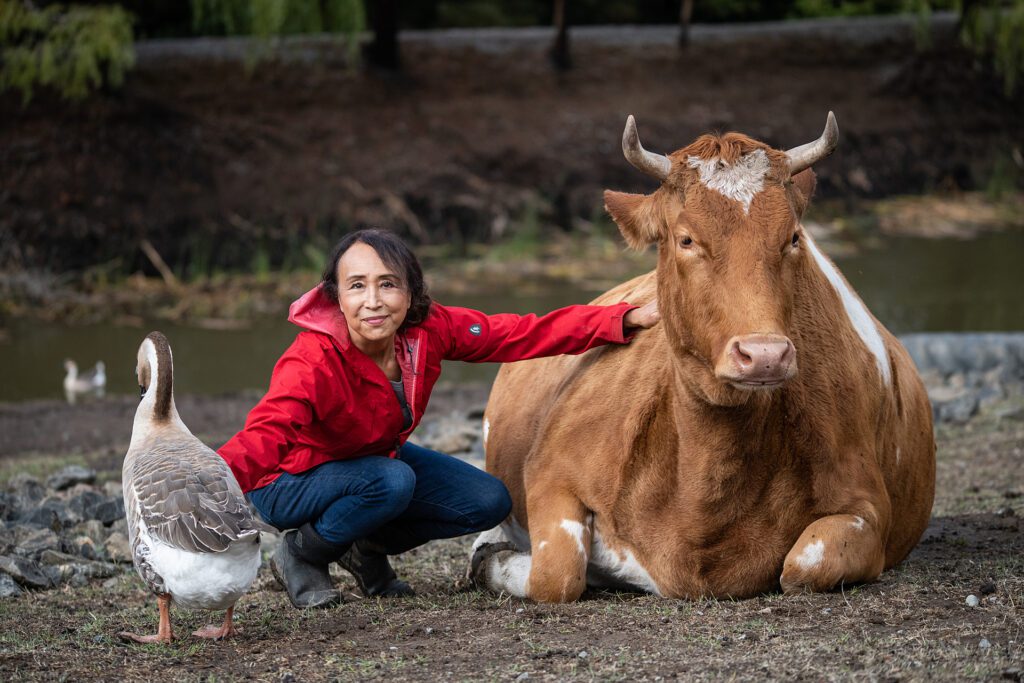
Nonhuman animals are individuals, not things
“While there is increasing awareness about the plight of nonhuman animals, far too much of the information we’re regularly exposed to about them, particularly in the media, doesn’t give a ‘voice to the voiceless,’” write EFL contributors Debra Merskin, Carrie P. Freeman and Alicia Graef on DownToEarth. “Instead, it both subtly and overtly reinforces speciesist views, especially by misrepresenting nonhuman animals and their lived experiences by referring to them as if they were inanimate objects, as it, that and which.
“This misrepresentation perpetuates their objectification and fails to show humans exactly who these animals really are, and how they suffer from widespread institutionalized oppression and systemic injustices on a daily basis. This must change to reflect their existences as conscious beings—a nonhuman animal is a who, not a that. A someone, not a something.”
—EFL contributors Debra Merskin, Carrie P. Freeman and Alicia Graef, “Why We Should Change How We Talk About Nonhuman Animals” (DownToEarth, July 8, 2021)
Parting thought…
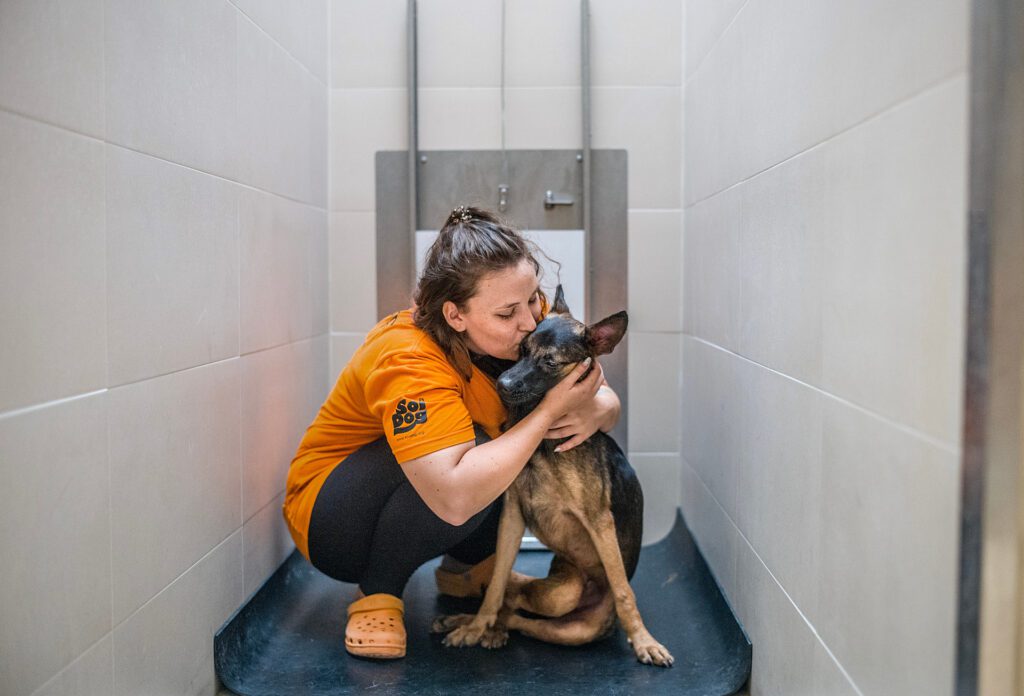
“Dogs are not our whole life, but they make our lives whole.” —Roger Caras
Earth | Food | Life (EFL) explores the critical and often interconnected issues facing the climate/environment, food/agriculture and nature/animal rights, and champions action; specifically, how responsible citizens, voters and consumers can help put society on an ethical path of sustainability that respects the rights of all species who call this planet home. EFL emphasizes the idea that everything is connected, so every decision matters.
Click here to support the work of EFL and the Independent Media Institute.
Questions, comments, suggestions, submissions? Contact EFL editor Reynard Loki at [email protected]. Follow EFL on Twitter @EarthFoodLife.
